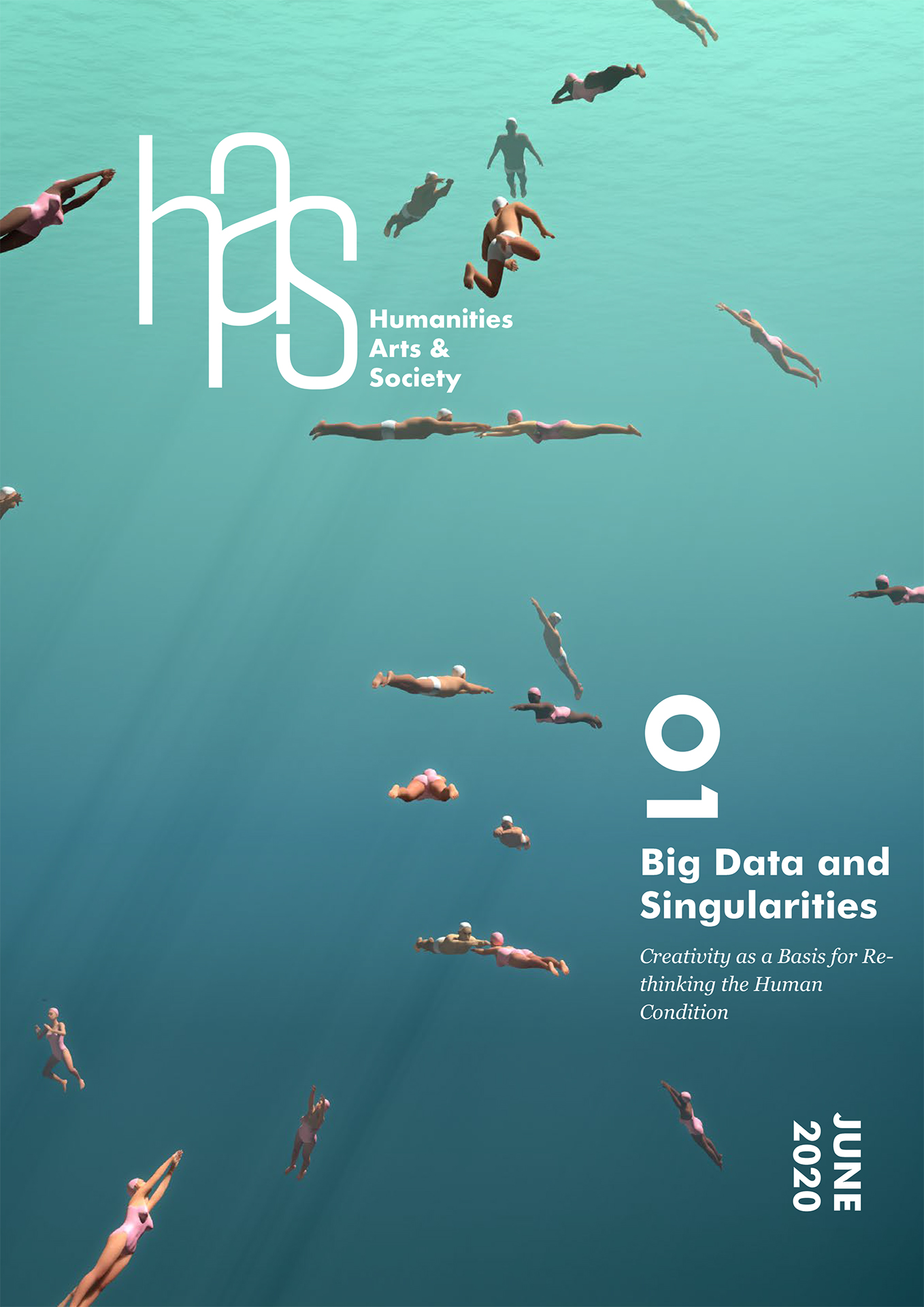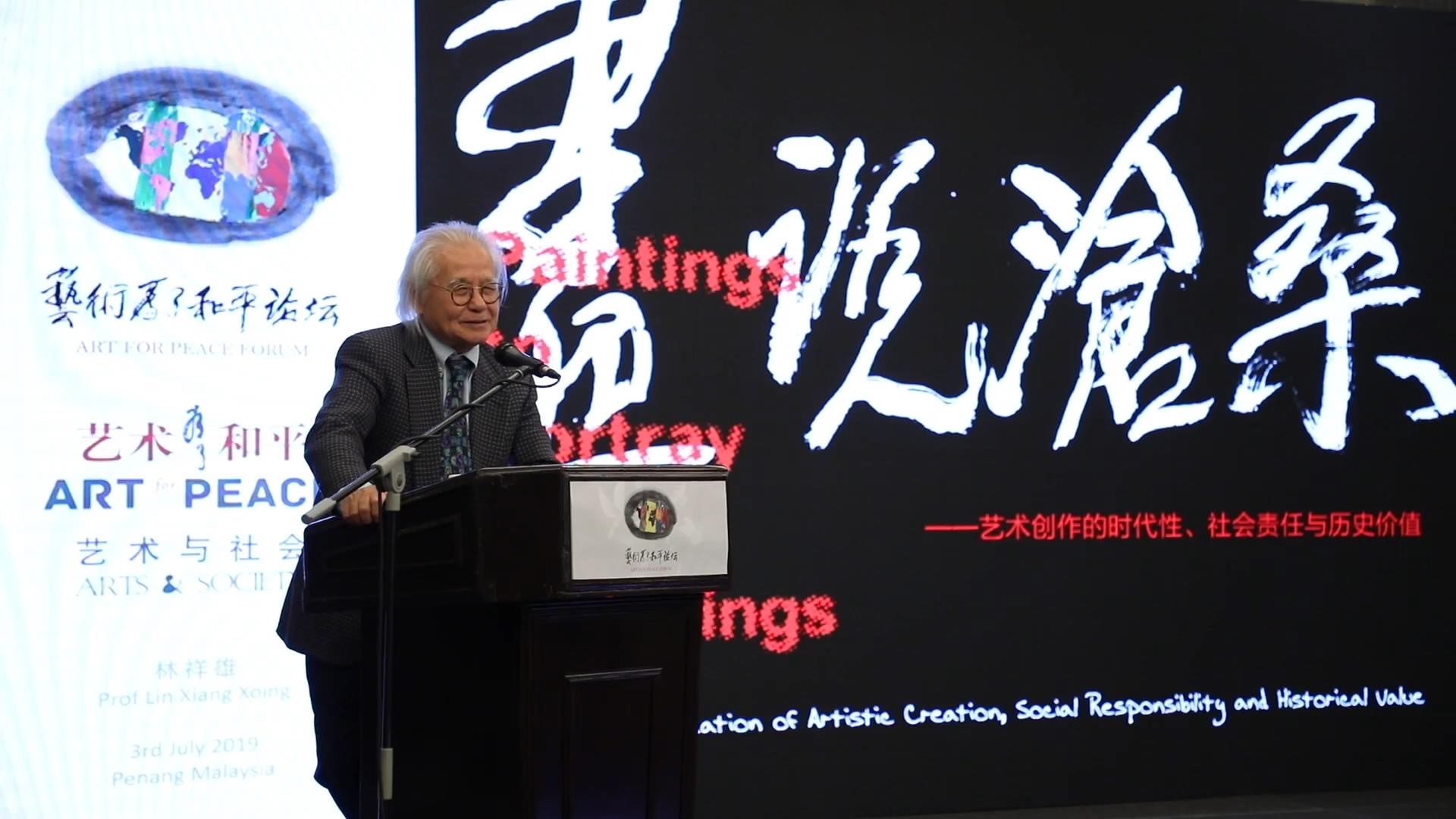
I. Vision
Our vision is to build a spiritual home of equality, freedom and openness; to enable human beings to meet, interact and learn through dialogue between arts and culture; to communicate with one another, to think together about the future of humanity and harmony in the world.
II. International Advisory Panel
In order to strengthen the academic, scholarly and global character of GCACS and to promote exchange and collaboration between the Eastern and Western hemispheres and cultures in different fields, GCACS has established an international Advisory Panel to strategically guide the activities and future development of the Society.
Advisors include:
The East
Jao Tsung-I (China)
Zhang Qizhi (China)
Li Zehou (China)
Liu Mengxi (China)
Yuan Xingpei (China)
Wu Zhipan (China)
Yan Shaodang (China)
Zhang Qingshan (China)
The West
Wang Gungwu (Australia)
James Chieh Hsiung (USA)
Tu Weiming (USA)
Roger T. Ames (USA)
Guy Salvatore (USA)
Tan Chung (USA)
Huang I-shu (USA)
Charles-Etienne Lagasse (Belgium)
Michel Baudson (Belgium)
Charles Le Blanc (Canada)
Wolfgang Kubin (Germany)
Karl-Heinz Pohl (Germany)
BAKANDEJA wa MPUNGU (Congo)
Guy Dockendorf (Luxembourg)
Wolfgang Kubin (Germany)
Karl-Heinz Pohl (Germany)
Guy Dockendorf (Luxembourg)
III. Brief Introduction of Arts and Cultural Activities
The Global Chinese Art & Culture Society was initiated and fully sponsored by Professor Lin Xiang Xiong, a Singaporean artist and entrepreneur, and registered with the Singapore Society Administration in January 2010. Based in Singapore, GCACS is in the process of setting up branches in Europe and Oceania.
Through the organization of cultural projects, such as culture and art conferences, high-level symposiums and the publishing of scholarly monographs, we are aiming to advocate mutual respect, mutual understanding and trust between different nations, different peoples and different civilizations.
On 28 December 2009, GCACS was approved by the Registrar of Societies under the Ministry of Home Affairs of Singapore to become a civil society art group for the preservation of cultural heritage.
In December 2010, jointly with Association for Yan Huang Culture of China and the Department of Chinese Studies of National University of Singapore, GCACS successfully hosted a biennial forum, the Sixth International Symposium of the World Forum on Chinese Culture in the 21st Century in Singapore, for the first time outside China. Over 150 renowned scholars from all over the world attended this forum. This high-level East-West cultural exchange received wide attention and recognition.
In April 2011, GCACS, the National Gallery of Singapore and Lianhe Zaobao co-organized the conference and symposium Tropical Vanguard, commemorating the centenary of Mr. Liu Kang (1911-2011).
In December 2012, GCACS collaborated with the Association for Yan Huang Culture of China and La Trobe University of Australia in organizing the Seventh International Symposium of the World Forum on Chinese Culture in the 21st Century. More than 120 representative scholars, artists and personalities attended.
In September 2013, supported by the Ministry of Culture of China and in collaboration with the Chinese National Academy of Arts and Association for Yan Huang Culture, GCACS hosted Seeking Heaven and Earth—The World Tour Exhibition of the Contemporary and Renowned, Singapore Artist Prof. Lin Xiang Xiong (2013- 2015). The new works of this post-Nanyang school of painting have attracted widespread attention and praise from the Chinese art community, and have established a solid position for this innovative fusion of Chinese and Western expression in painting.
In November 2013, GCACS, the Confucianism Society Singapore and the Institute for Advanced Humanistic Studies hosted the Confucianism and Religion: Interaction and Dialogue International Symposium in Singapore.
In May 2015, GCACS, Wallonie-Bruxelles International and Le Bois du Caizer Museum organized a three-month art exhibition named Lin Xiang Xiong’s World of Painting in Charleroi, Belgium. This East-West method of painting and expression, and the thematic and ideological nature of the works have attracted a great deal of attention in the European art world. The artworks’ expressions and aspirations for objective realities such as anti-war, anti-pollution and anti-poverty were warmly appreciated and supported, giving
way for an artistic trend of “Eastern art moving West.”
In June 2015, GCACS and the Institute of Eastern Studies at Beijing University, held The 1st International Symposium of Forum of Eastern Cultures in the 21st Century (FEC) at the Peking University Hall. This forum, based in Beijing University, aims to build a large, eastward-looking, global audience, bringing together renowned scholars from all over the world to explain the importance of the Forum in a multifaceted and diverse way.
In September 2015, GCACS and the China Artists Association jointly organized The 6th Beijing International Art Biennale, Southeast Asia Contemporary Art Exhibition. GCACS invited artists from Southeast Asia to an art exchange with Chinese artists.
In May 2016, GCACS with Wallonie-Bruxelles International and the School of Arts at Beijing University organized a group exhibition titled Art For Peace with cross-cultural perspectives between the East and the West at the UNESCO headquarters in Paris, inviting eleven artists from Belgium, China and Singapore to exhibit their paintings. The exhibition was curated by Professor Lin Xiang Xiong, under the auspices of UNESCO. This exhibition was devoted to the promotion and strengthening of dialogue between different peoples and cultures as well as wider reflections, through the themes it addressed, including the ecological, social and economic challenges facing the continents.
The exhibition promoted and enhanced dialogue between different cultures and peoples under the core concept of UNESCO, especially the themes of anti-war, anti-pollution, poverty. The connotation of the paintings and the ideological expressions and techniques perfectly combined artistic elements of the East and the West, expressing the themes. The exhibition won recognition from the public and renown in the West.
In December 2016, Boya Forum, the First Forum of Beijing University, was held in Malaysia. GCACS, as the main organizer, invited Justin Yifu Lin, the former senior Vice President and Chief Economic of the World Bank, to give a keynote speech on One Belt One Road and Free Trade Zone: China’s New Open Door Initiative and Measure.
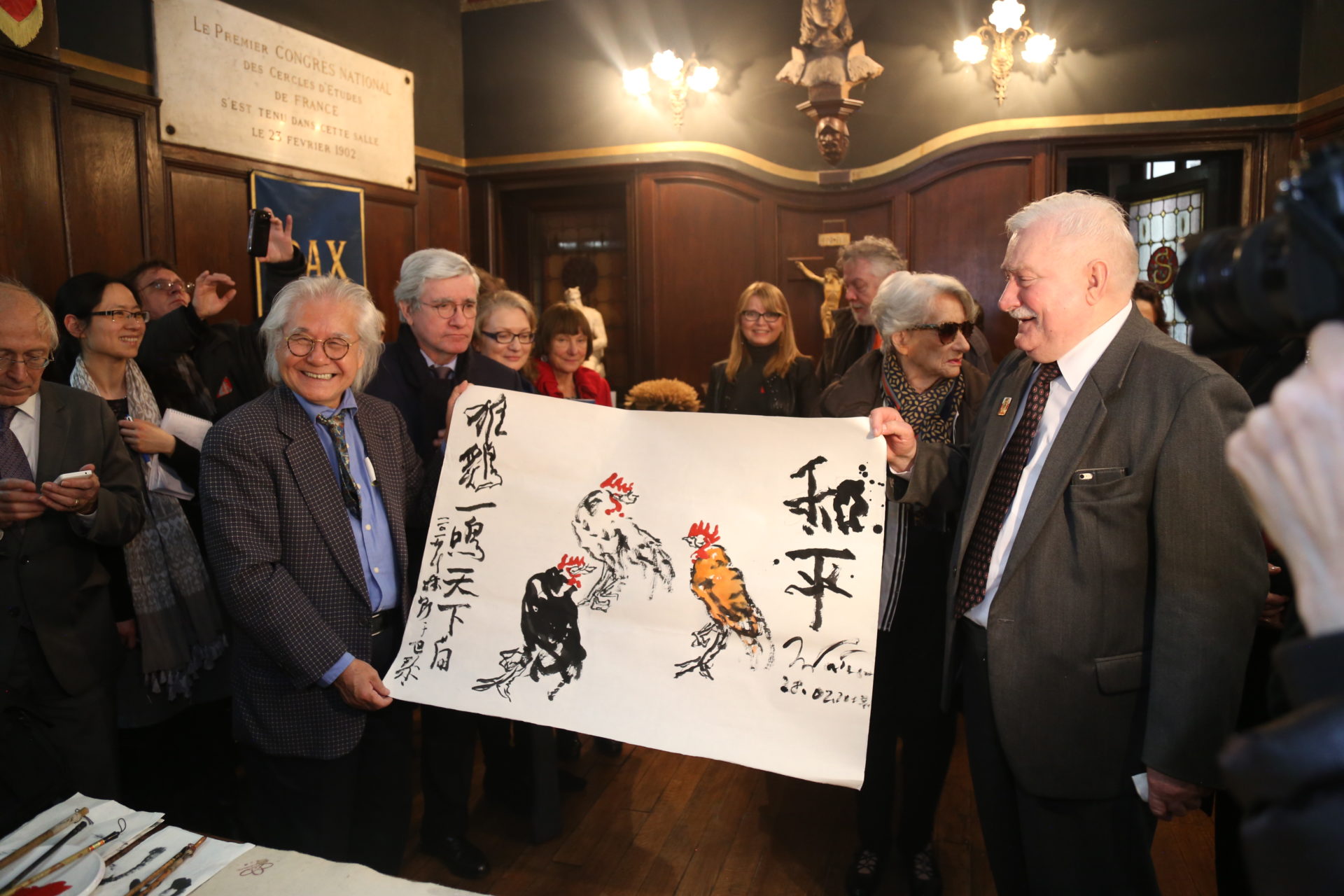
In March 2017, the Art For Peace forum was organized at the French Senate in Paris, co-sponsored by GCACS, The Art for Peace Society and Area Magazine. Professor Lin Xiang Xiong and Mr. Lech Walesa, the former president of The Republic of Poland, and several artists had a wonderful dialogue sharing various perspectives. While artists show human concern through their works, politicians create social harmony through the right decisions to achieve equal and peaceful political mechanisms. Not only did this unique activity create a “political” fire of dialogue and exchange at the political and artistic levels, but it also created a new form for the Forum’s future dialogue platform.
In March 2017, GCACS collaborated with the Hong Kong Society of Asia-Pacific 21 and Institute of Eastern Studies, Peking University, to hold The 1st International Penang Forum—The Belt & Road Initiative and Southeast Asia in Penang, Malaysia. Fifty-two experts and scholars from different academic fields in China, Hong Kong, Macao, Taiwan and Southeast Asia discussed in depth the situation of BRIDGE 1 in Southeast Asia in terms of political economy, historical and social structure, and the integration of textures.
In August 2017, GCACS, in partnership with UNESCO, the International Council for Philosophy and Human Sciences (CIPSH) and the local government of Liège, organized the first-ever World Humanities Conference, bringing 1800 professionals, scholars and artists to Liege. This event covered disciplines including politics, economics and culture. Scholars from different fields, with different academic viewpoints and arguments, enthusiastically and freely expressed their concern for humanity and society in the 21st century. Professor Lin Xiang Xiong delivered a keynote speech on Humanity and Civilization, covering the origin of human beings as well as the social structure, political system, and economic system in human history, the structure and fluctuation of human nature, and the exchange and integration of its resources, providing a new perspective on the current political and economic situation in the world.
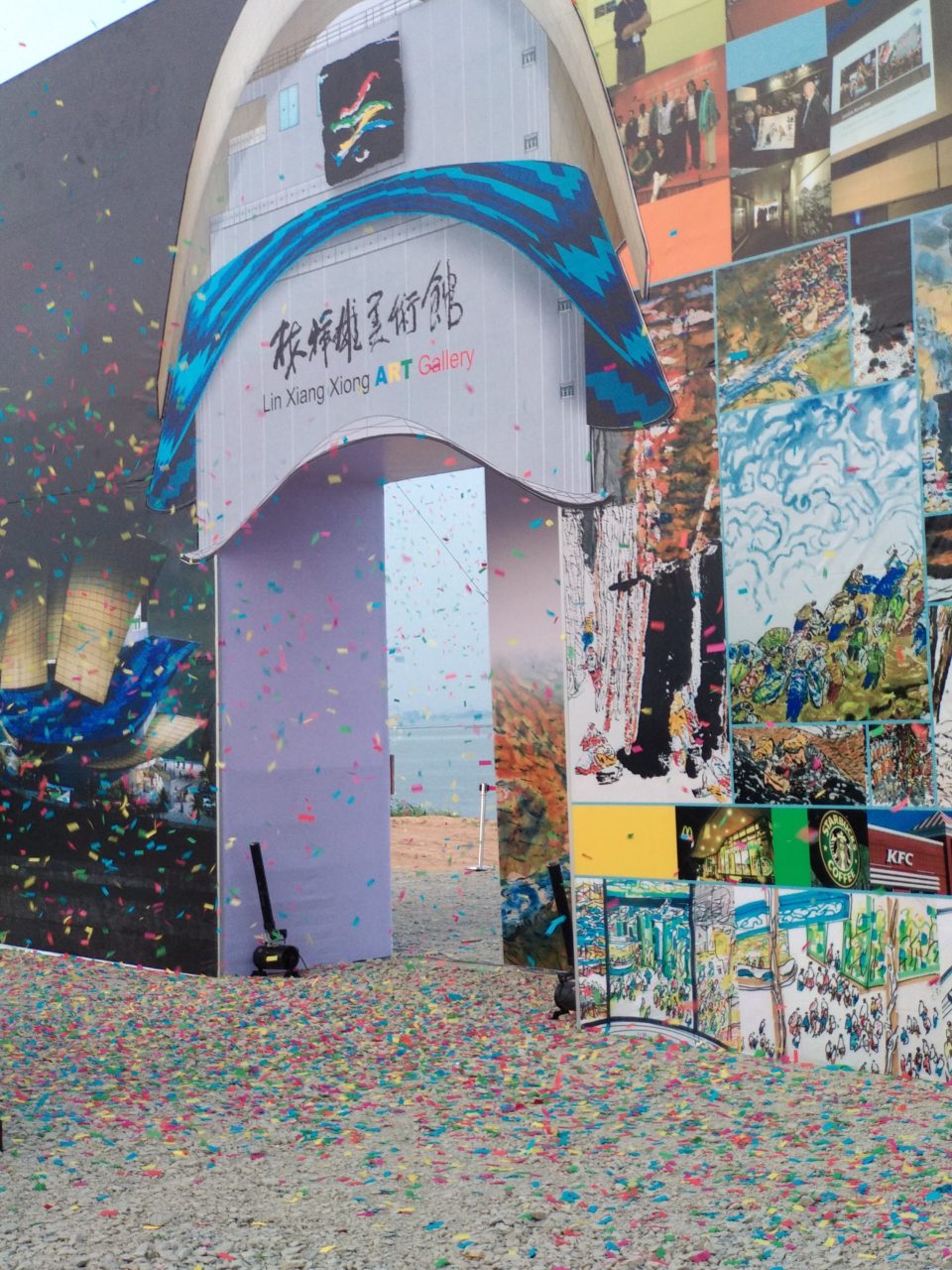
In July 2019, UNESCO-MOST, the Inter-national Council for Philosophy and Human Sciences (CIPSH), Mémoire de l’Avenir and GCACS co-organized the Second Art for Peace Forum: Art and Society, held in Penang, Malaysia. Scholars and professionals from all over the world participated in the conference. From the interpretation and analysis of philosophy, history, documentation and art, the analysis and validation of Chinese and Western ideas, discussions on the mediums and vehicles of artistic creation and expression, as well as the tracing of human nature and the origins of art, social responsibility and historical value, this one-day forum was a stimulating focus of expression and analysis.
The upcoming Lin Xiang Xiong Art Gallery, worth approximately RM88 million, is set to grace the eastern coastline of Gelugor. Spanning 88,000 square feet, this prestigious development is built on a freehold site measuring 0.89 acres, situated near The Light Waterfront Penang. In line with the artistic quality of the gallery, the unique and awe-inspiring architectural design is inspired by a turtle coming ashore. A nod to the popular cultural Chinese belief, the turtle represents prosperity, longevity and kindness, and reflects the positive tidings that will be ushered into Penang and Malaysia. Slated to be Penang’s latest cultural icon, this seven-storey building will include a UNESCO education centre on the ground floor and spaces for a plethora of artwork from around the world. Construction commenced in December 2018 and is expected to be completed in 2022.
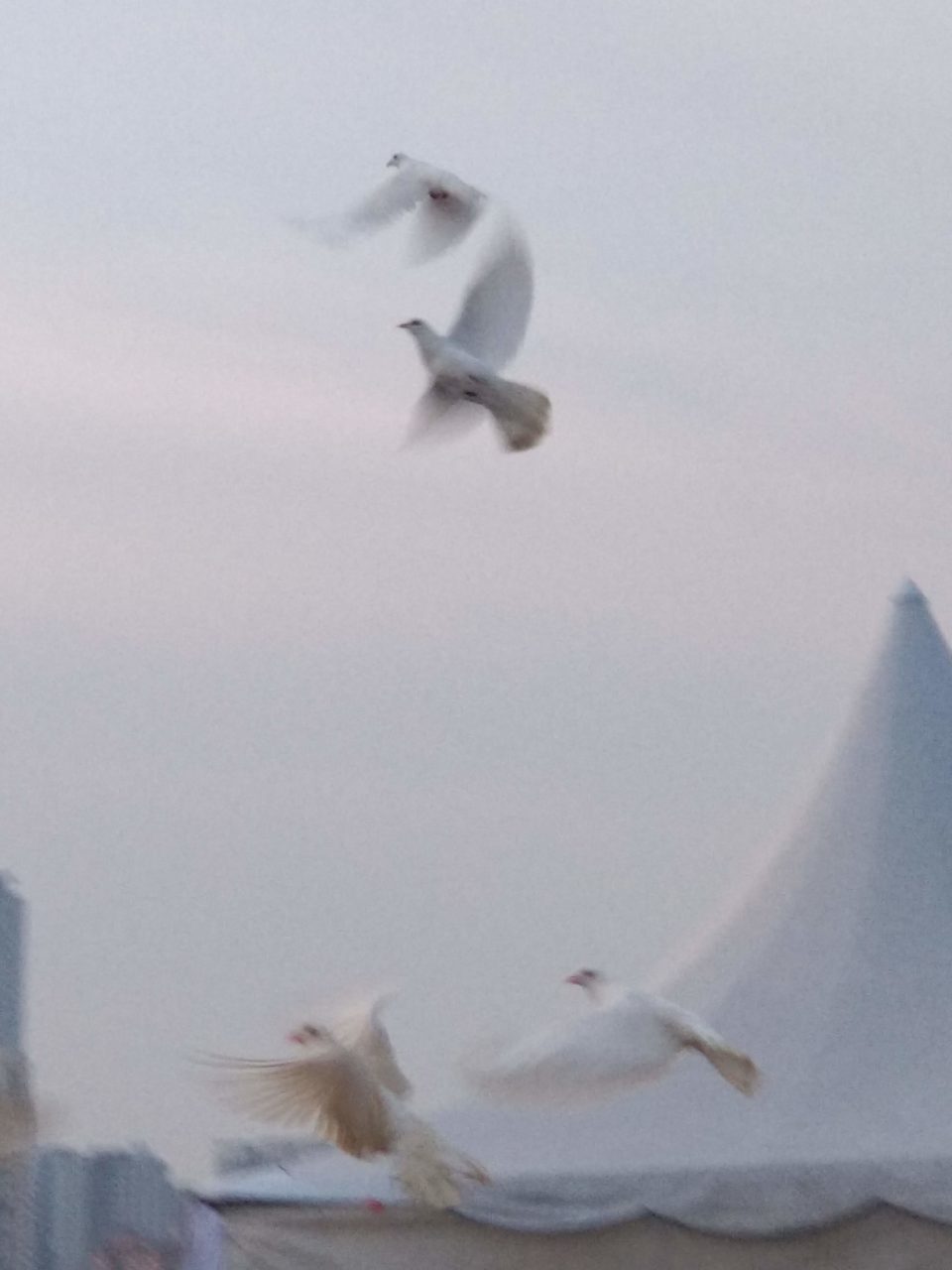
Global Chinese Arts & Culture Society
http://www.gcac.org.sg/en/home/
Global Chinese Arts & Culture Society
http://www.gcac.org.sg/en/home/
